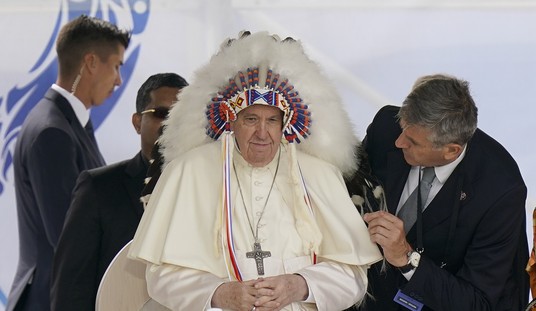The Sunni bloc had negotiated a return to the Nouri al-Maliki government for the past few months, ever since Maliki reclaimed Basra, Amarah, and Sadr City from Moqtada al-Sadr and the Jaish al-Mahdi militias. Today they formally returned, giving Maliki a key boost to his political fortunes and making it easier for Maliki to get his initiatives through a fractious National Assembly. It also adds credibility to his efforts to unify and stabilize Iraq:
The main Sunni Muslim bloc in Iraq has rejoined the Shia-led government, in what correspondents called an important step for national reconciliation. …
The Accord Front’s main reason for leaving the cabinet last August was that the government and security apparatus were dominated by Shia factions with an allegedly sectarian agenda.
The main thrust of security operations at that time was against Sunni-based insurgents, and many thousands of Sunnis were detained, our correspondent says.
Of course, the Maliki government and the US had good reason to prioritize the fight against al-Qaeda in the western, Sunni areas. They were at the time far more destructive than the Mahdis in the south and the capital and represented a much larger threat to the central government. The Sunni tribal chiefs had had enough of AQI as well, and the timing worked well for a concerted effort at victory. Unfortunately, the effort temporarily alienated some of the Sunni lawmakers, especially over the issue of the thousands of Sunnis that got detained indefinitely in the fight.
Maliki’s bold political moves last year and even bolder military moves this year made the difference. At the startof the surge, Maliki started distancing himself from Sadr, allying instead with SCIRI, Sadr’s Shi’ite rivals in the south. Sadr’s deputies stormed out of his government, but Kurds and other Shi’ites replaced them, effectively marginalizing Sadr, apparently for good. Maliki went directly to the Sunni tribal chiefs in the west in a show of respect, and they responded positively, if not enthusiastically, to Maliki’s entreaties. And when Maliki felt his new Iraqi Army had gained the necessary strength to act, he pushed Sadr out of all his power bases in a matter of weeks across a wide swath of the country, and then struck against AQI in Mosul simultaneously.
Before last year, Maliki was seen as a weak sister, the compromise candidate who couldn’t lead. He has reversed that quite effectively, both inside and outside Iraq, and he can build on that show of strength. With the Sunnis returning and the Iraqis demonstrating their sovereignty over the entire nation, Maliki should have little problem enacting his slate of legislative reforms, and the provincial elections will likely become a vote of strong confidence in his leadership in October.
Iraq may be almost out of the woods and on its way to a strong, stable democracy in the heart of Southwest Asia. How many times have we heard that to be impossible?








Join the conversation as a VIP Member